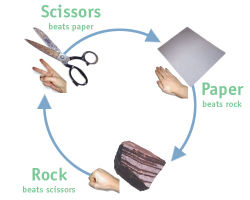Not all law schools have a Law Review or similar student run academic journal. If your chosen school does not, please ignore this post.
If your school does have a Law Review or other student run academic journal, you should seriously consider participating on its editorial board or committee.
In the U.S., Law Reviews are very serious business. Depending on the Canadian law school, Law Reviews can be serious business as well. In most U.S. law schools, only those who are invited get to sit on the Law Review editorial board. Only the cream of the crop ever gets the opportunity. Law Review is considered very highly by employers, and is almost always a requisite for graduate studies in law or professorship.
As an example, the
Alberta Law Review, a publication that has been in print for 51 years (established in 1955, with its predecessor, the Alberta Law Quarterly, established in the 20’s), follows the same basic format as the U.S. Review system. Second year students (i.e. those who are entering 2L) apply to the Law Review, and applications are reviewed by the Law Review executive (Co-Editors-in-Chief, Treasurer) and Faculty Advisors (usually four). Each of these people is given one vote, and out of those votes 14-16 new members of the Editorial Board are chosen. It is a big honour to be selected to the committee. Many applicants are turned down. For the most part, grades are the prime criterion for selection. However, as the Editorial Board is broken down into various committees, it is possible for a student to gain acceptance, even if their grades are not at the very top of their class, if they can offer unique and useful skills that will help the Law Review to run smoothly. The Alberta Law Review is a business with an operating budget of over $100,000. As a result, committee members are given a lot of responsibility, and it is very important to ensure that committee members have the requisite skills to complete their particular tasks. Being good at law exams does not necessarily indicate this requirement.
If you are selected to the Editorial Board (you apply in the first week of 2L), you will have a 2-year commitment, consisting of 52 hours of work per year for each of the two years for a total of 104 hours. These 104 hours are broken down into editing and committee work. Each member of the Editorial Board must complete a minimum of two full edits (usually 20-80 hours of work each) over the two years. The rest of the time is made up with committee work. As a reward for your hard work over the two years, you are given credit for one 3-credit course in the last year of your last semester. As well, as a member of the Editorial Board, you have the option of registering for the Law Review Research Paper course, which requires you to write a 20-page case comment and to present this comment to a group consisting of Editorial Board members. These two credit opportunities can really take a load of pressure off your shoulders during your last year of law school.
Other benefits of being on the Alberta Law Review include a personalized letter from the Alberta Courts inviting you to apply for clerkships with the Alberta Courts. This is a nice “in.” More importantly, recruiters tend to look very highly upon experience on the Law Review. Inclusion indicates that you are most likely the best of the best, that you have gained considerable experience in legal research and writing, that you have developed an eye for detail, and that you are aware of a number of current legal issues. As well, if you are considering graduate school in law, inclusion on a Law Review will go a very long way for you, especially if you apply in the States. It is a well-kept secret that Law Review does not hold quite the same status in Canada as it does in the States.
A further opportunity comes in your third year of law school if you are elected as Editor-in-Chief (as I was). This is a full-time paid position during the spring/summer of after your second year, and a part-time paid position during your third year. This is an excellent opportunity to beef up your curriculum vitae, to make amazing contacts, and to learn leadership skills. I was able to converse often with leading academics, practitioners, and judges during my term. I also had the opportunity of having dinner with the Chief Justice of Canada, and of having dinner meetings with former members of the Supreme Court of Canada, the Court of Appeal and the Court of Queen’s bench of Alberta. Among some other key things, I attribute this opportunity to landing me so many interviews and subsequent job offers during the articling recruitment period.
Each law school will have a somewhat different process and organization for their law journal. Be sure to inquire with your law school early and find out how you can become involved. Some schools will offer more or less credit than the Alberta Law Review.
If you have any questions about the Law Review experience or process, send me an
email.
 I know diploma mills are not new, but with e-commerce now in the mainstream, they are perhaps more brazen than ever. Just look here. The fake law diploma at the bottom of the page is absolutely priceless. (Actually, it's only $18.95 for two graduate degrees--maybe I'll order some.) Sadly, some lawyer-wannabees probably have these very fakeplomas hanging on their wall, fooling helpless innocents.
I know diploma mills are not new, but with e-commerce now in the mainstream, they are perhaps more brazen than ever. Just look here. The fake law diploma at the bottom of the page is absolutely priceless. (Actually, it's only $18.95 for two graduate degrees--maybe I'll order some.) Sadly, some lawyer-wannabees probably have these very fakeplomas hanging on their wall, fooling helpless innocents.


